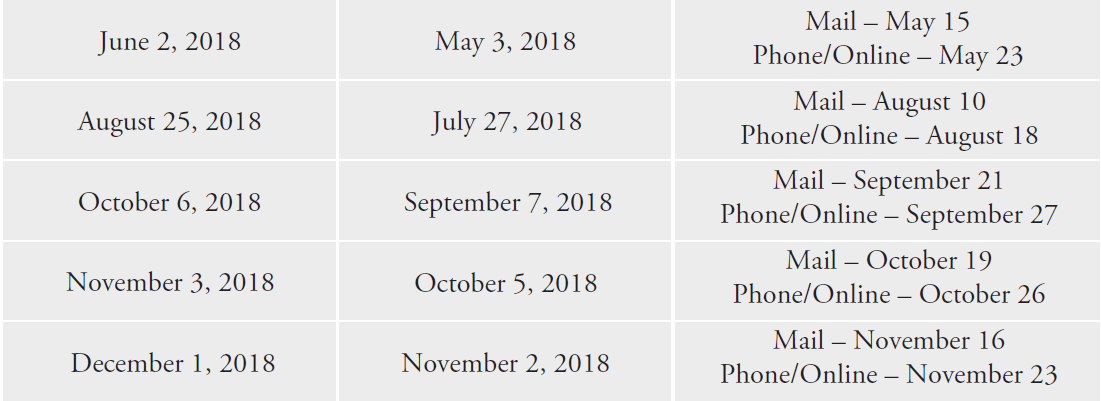Summer Learning Happens So Fast
Summer is nearly here and, as students get through their finals and AP tests, it can be hard to convince them that summer learning is an opportunity rather than a chore. Depending on the individual student’s strengths, goals, and timeline, summer tutoring can be optimal for ACT or SAT preparation.
Test Dates to Target
There are several dates remaining to take the ACT or SAT in 2018 for students to consider:
Join the A+ Newsletter!
We promise, no spam—just a monthly dose of educational insight, strategies, and exclusive tips straight to your inbox.
These dates may be more or less valuable depending on your class year, as well as several other factors:
- The summer and early fall test dates can be terrific opportunities for rising juniors to wrap up their standardized test preparation before the winter holidays and the hectic schedule of junior year classes and extracurriculars.
- The remaining 2018 test dates are critical for rising seniors to lock in their test scores before sending in college applications.
- Students who have yet to take a test can utilize the summer for a comprehensive introduction/overview.
- Students who have official scores already, but who want to try for a bit more growth, can review material they’ve already covered previously for deeper understanding, as well as incorporate more advanced content and skills from their junior year studies.
A Focus on Math
One of the factors to consider in designing a student’s summer test preparation plan is the student’s most recently completed classroom math level. The ACT and SAT both cover math content up to and including trigonometry. However, there are a limited number of questions that require this content knowledge, so students shoring up their foundational math skills can make terrific gains without covering the most challenging material on the tests. Summer tutoring can help a student to close any gaps in previous math knowledge, such as geometry, while connecting more advanced math skills to the student’s foundational skills. This leads not only to score growth, but also to deeper math learning that can be applied in the next school year’s math class and beyond.
Building Comprehension
Tutors and students can make great use of the summer months by building comprehension skills, which often take more time to develop. The deeper comprehension skills required for success on the reading and science passages can benefit from early intensive focus while math and grammar content knowledge are being refreshed and developed throughout the summer and subsequent school year. There are strong opportunities for growth available throughout the test preparation process before advanced algebra and trigonometry are addressed in students’ math classes. The ACT’s Science section and the SAT’s focus on historical documents are examples of areas that students should be thinking about early and often. Comprehension ability and individualized annotation techniques are tools that students can develop during their summer tutoring and then utilize in the fall (and beyond).
The Advantages of Summer Tutoring
Another consideration is your student’s school-year extracurricular commitments. Grades are critically important in the semesters before college applications are due, and the added stress of a big Model UN conference, a rigorous football season, or the school play, can already feel overwhelming. Add standardized test preparation and students may experience burnout. At the very least, they will be likelier to short-change their test preparation. The summer can provide an opportunity to focus on the tests, and allow more time to focus on school work during the fall, winter, and spring.
The greatest asset for a summer student is time. This means more flexible scheduling, but also more opportunity for learning. More than availability for sessions during the day can help students arrange more frequent sessions with their tutor. And, without the burden of their school day learning, copious homework assignments, and a rigorous test schedule, students have increased cognitive and emotional bandwidth for their standardized test preparation.
Studies show that distributed learning, in which students review a bit of material every day rather than cramming before a test, leads to lasting learning. While cramming can be effective for getting a grade, the knowledge rarely lasts. The best knowledge retention comes from a shorter daily practice – the same type of training that also helps students develop the skill set necessary for success on the tests.
In his review of recent learning science findings, How We Learn, science writer Benedict Carey summarizes the powerful research done on distributed learning, otherwise known as the spacing effect: “Distributed learning, in certain situations, can double the amount we remember later on… You’re not spending any more time. You’re not working any harder. But you remember more for longer.” The amount of recommended space between lessons ranges from a few minutes to a few days or even weeks.
In his interpretation of these findings, Carey acknowledges the struggle faced by parents trying to encourage their students to engage in distributed learning techniques: “As parents know too well, it’s enough of a chore to get students to sit down for single study sessions, never mind multiple ones.” The flexible scheduling of the summer allows students to space out both their tutoring sessions and their homework, creating more learning in the same amount of study time. Two slightly shorter tutoring sessions per week in the summer is much more powerful than the same amount of time spent in one sitting every week during the school year.
School Learning vs. Test Preparation
During these critical years, students can often experience academic burnout during the school year. The content they worked so hard to incorporate during the school year can slip away during the leisurely summer months. Preparation for standardized tests can provide variety in the nature of their studies while solidifying the skills developed in their regular studies. The variation between learning situations between school and the tests, as well as between the different sections of the tests, is a powerful tool/opportunity for deep cognitive development.
Summer Tutoring Schedule
The open schedule of summer allows parents and students to plan intelligently about how to utilize each student’s individual study styles. Students who learn best in the morning can meet with a tutor before lunch, and then utilize the afternoon or evening to review material after each session or prepare for the next day. Students whose afternoons and evenings would typically be packed with practices, rehearsals, and other homework, will be able to meet with their tutor feeling fresh and ready to focus.
Many students have several summer weeks blocked out for travel or camp, and navigating the preparation schedule around these gaps requires some forethought. The time between the end of the school year and the beginning of a trip can be utilized for foundational work, particularly if the student is able to do some independent review of material while they are away from their tutor. The tutor should be able to assign homework materials in ways that maximize this away time, and create a plan with their students that will lead to deeper understanding rather than knowledge atrophy during downtime.
Even an introductory session or a few can help a student and their tutor lay the foundation for their future sessions after the summer holiday or camp break. Students can form a connection with the tutor by getting to know them a bit better on a personal level, and tutors can get utilize the time to review the student’s diagnostic test with them to generate a plan. This way, the student and tutor can hit the ground running once they’re able to get started on content review and skill-building.
Staying Motivated
It may not be easy to keep students engaged during the beautiful summer weather. One strategy to stay motivated is to pair studying with a reward. Students can use fun summer activities as a reward for their daily practice, or they can combine these two activities to lessen the demands on will power and create a positive habit. Taking your books to the backyard or the park can help students feel less like they’re giving up precious time and create a positive cognitive association with standardized test preparation. Utilizing the summer to shift academic focus from the immediate gratification of school grades to the college admissions process can help students gain perspective about their studies and their long-term goals. Preparing for the ACT or SAT is a deliberate step toward their chosen future, and the summer months can provide some space for students to think about their lives beyond high school.
Students with Learning Differences
Summer can be an especially important opportunity for students with learning differences to focus on standardized test preparation. Students with learning differences benefit particularly from the increased bandwidth and flexible scheduling of the summer months.
Staying motivated can be a particular challenge for these students, who often have a history of academic experiences that are frustrating or disappointing, and which generate negative associations and trigger neurological stress responses that can prevent deeper learning. Using summer activities and treats as a reward, or even as associated activity, can generate a positive framework for standardized test preparation that can reduce stress for students with test anxiety. The reduced pressure of the summer schedule, combined with a compassionate tutor focused on their unique learning style and individual growth, can help students with learning differences and test anxiety to access their abilities and create a positive learning experience.
Summertime Learning
Summer tutoring presents a unique opportunity to keep students sharp, maximize their time, and bridge any gaps between their school year studies. Utilizing the summer for test preparation can lead to greater growth on the ACT and SAT, not only taking pressure off the rest of the year, but also contributing to greater comprehension throughout the rest of their studies and beyond the tests.












